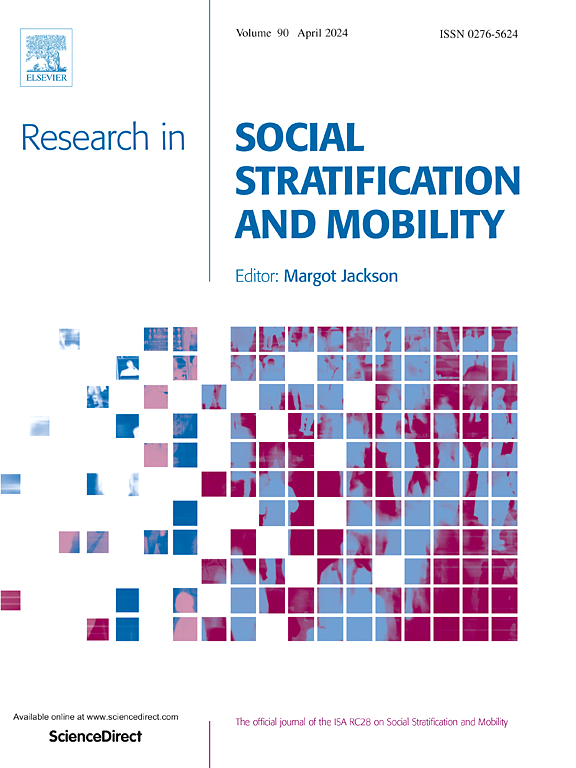What happens to bright 5-year-olds from poor backgrounds? Longitudinal evidence from the Millennium Cohort Study
IF 2.7
1区 社会学
Q1 SOCIOLOGY
引用次数: 0
Abstract
High-achieving children from low-income families have perhaps the best opportunity to break through the glass ceiling and achieve upwards social mobility. Yet there have been relatively few studies investigating how key outcomes for this group develop throughout childhood, and how this compares to their equally able but more socio-economically advantaged peers. This paper draws upon Millenium Cohort Study data from the UK to provide new evidence on this issue. We find that the cognitive skills of bright 5-year-olds from low-income families keep pace with those of children from high-income families through to the end of primary school. However, the transition into secondary is a critical period, with high-achieving children from poor families experiencing a particularly sharp relative decline in their attitudes towards school, behaviour, mental health and academic achievement between age 11 and 14. The failure to fully capitalise on the early potential of this group is likely to be a key reason why the UK is failing to become a more socially fluid society.
低收入家庭中成绩优秀的儿童或许最有机会突破 "玻璃天花板",实现社会向上流动。然而,对这一群体在整个童年时期的主要成果如何发展,以及与能力相当但社会经济条件更优越的同龄人相比如何的研究却相对较少。本文利用英国千年队列研究(Millenium Cohort Study)的数据为这一问题提供了新的证据。我们发现,来自低收入家庭的 5 岁聪明儿童在小学毕业前的认知能力一直与来自高收入家庭的儿童保持同步。然而,升入中学是一个关键时期,来自贫困家庭的成绩优秀儿童在 11 至 14 岁期间,在对学校的态度、行为、心理健康和学业成绩方面的相对下降尤为明显。未能充分利用这一群体的早期潜力,很可能是英国未能成为一个社会流动性更强的社会的关键原因。
本文章由计算机程序翻译,如有差异,请以英文原文为准。
求助全文
约1分钟内获得全文
求助全文
来源期刊
CiteScore
7.80
自引率
6.00%
发文量
46
期刊介绍:
The study of social inequality is and has been one of the central preoccupations of social scientists. Research in Social Stratification and Mobility is dedicated to publishing the highest, most innovative research on issues of social inequality from a broad diversity of theoretical and methodological perspectives. The journal is also dedicated to cutting edge summaries of prior research and fruitful exchanges that will stimulate future research on issues of social inequality. The study of social inequality is and has been one of the central preoccupations of social scientists.

 求助内容:
求助内容: 应助结果提醒方式:
应助结果提醒方式:


